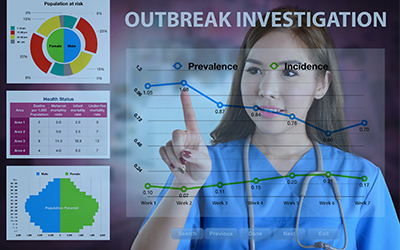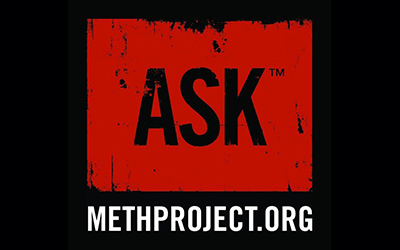
by R-IV PHTC | Jan 13, 2020 | Training
Public Health’s Role in the Prevention and Control of Healthcare-Associated Infection
Year: 2018 | Competency/Strategic Skill: Community and Partner Engagement | Priority Topic: Other Infectious Diseases | Setting: Online | Format: On-Demand | Sponsor: Emory University/Central Office
Overview:
This is a 90-minute recording of a live webinar.
Rates of healthcare-associated infection continue to decline due, in part, to an organized collaboration between healthcare facilities and public health partners. These successes have likely been influenced by in-depth assessments that reinforce the need for basic infection prevention and control practices. This session will review the history of healthcare-associated infection and the many interventions that have influenced outcomes.

by R-IV PHTC | Jan 13, 2020 | Training
Fighting Flu Now and Preparing for the Future
Year: 2018 | Competency/Strategic Skill: Program Planning | Priority Topic: Other Infectious Diseases | Setting: Online | Format: On-Demand | Sponsor: Emory University/Central Office
Overview:
This is a 90-minute recording of a live webinar.
“There’s no typical flu season,” said Lynnette Brammer to the Washington Post in 2013. Years later, this is certainly still the case. Join this webinar to learn about the current findings about the current influenza epidemic and preparations for the season to come. The Centers for Disease Control and Prevention publishes FluView weekly which provides influenza data to state public health officials, epidemiologists, clinicians and the public. Lynnette Brammer and Kristen Norlund will share surveillance findings, risk communication messages, and ways public health professionals are preparing for the future.

by R-IV PHTC | Jan 13, 2020 | Training
Understanding the Rural Landscape: What Works in Improving Health and Well-Being
Year: 2018 | Competency/Strategic Skill: N/A | Priority Topic: N/A | Setting: Online | Format: On-Demand | Sponsor: Emory University/Central Office
Overview:
This is a 90-minute recording of a live webinar.
This webinar is an opportunity to address what works to reduce disparities in rural communities and what’s needed in future research and practice. It will provide information about existing tools and an upcoming launch of a compendium of resources and that can be helpful when adapting interventions to the needs of rural communities.

by R-IV PHTC | Jan 13, 2020 | Training
Opioid Tapering Guidance and Whole Health Strategies for Pain Management
Year: 2018 | Competency/Strategic Skill: Program Planning | Priority Topic: Opioid Abuse | Setting: Online | Format: On-Demand | Sponsor: Emory University/Central Office
Overview:
This is a 90-minute recording of a live webinar.
In order to address the opioid misuse crisis, public health needs examples of prevention strategies at multiple levels from opioid tapering to bio-psycho-social-spiritual approaches to manage chronic pain. This webinar will describe ways to assist in determining if an opioid taper is appropriate for a given patient, in performing the taper, and in incorporating whole health strategies into a new care plan. Additionally, we will discuss the creation process and outcomes of the Empower Veterans Program developed at the Atlanta VA which engages an interdisciplinary team to deliver an integrated, intensive, self-care training program for restoration from chronic pain.

by R-IV PHTC | Jan 13, 2020 | Training
Leadership and Multi-generational Dynamics: Mentoring a New Generation of Leaders in the Workforce
Year: 2018 | Competency/Strategic Skill: Leadership and Systems Thinking | Priority Topic: N/A | Setting: Online | Format: On-Demand | Sponsor: Emory University/Central Office
Overview:
This is a 90-minute recording of a live webinar.
This webinar will expose participants to both the challenges and benefits of a transgenerational workforce for public health professionals as it relates to the future of health and healthcare delivery in the United States. It discusses evidence-based research and strategies for mentoring and professional development in this environment. Participants will learn how to elicit feedback from partners, techniques for effectively mentoring individuals of different generations, and how to develop and implement strategies to enhance opportunities for professional development. Additionally, this webinar will teach participants how to assess staffing needs, evaluate qualifications of staff members and volunteers needed for programs, and develop and implement strategies to retain staff members and volunteers.

by R-IV PHTC | Jan 13, 2020 | Training
Building Response-Ready State and Local Health Departments Across the Nation
Year: 2017 | Competency/Strategic Skill: Problem Solving | Priority Topic: N/A | Setting: Online | Format: On-Demand | Sponsor: Emory University/Central Office
Overview:
This is a 90-minute recording of a live webinar.
This webinar will discuss an overview of the Center for Disease Control and Prevention’s (CDC) Division of State and Local Readiness and Public Health Emergency Preparedness (PHEP) Program, including the following: Public Health Preparedness Capabilities, State and Local Operational Readiness, Public Health Emergency Preparedness Resources, and Role of Public Health in Emergency Response.

by R-IV PHTC | Jan 13, 2020 | Training
Budgeting: Linking Strategies to Resource Allocations
Year: 2016 | Competency/Strategic Skill: Resource Management and Financial Planning | Priority Topic: N/A | Setting: Online | Format: On-Demand | Sponsor: Emory University/Central Office
Overview:
This is a 90-minute recording of a live webinar.
The vision and mission of an organization cannot be accomplished without a carefully crafted strategic plan. A strategic plan with its objectives and action plans cannot be implemented without the allocation of resources in proportion to scope and scale of the action plans. This webinar will present to public health professionals the association between strategies and budgets, the types of budgets, the process of formulating a budget using a case study from a local public health department, and the fundamentals of measuring budget effectiveness.

by R-IV PHTC | Jan 13, 2020 | Training
Educating Policymakers About Public Health Issues
Year: 2017 | Competency/Strategic Skill: Policy Development | Priority Topic: N/A | Setting: Online | Format: On-Demand | Sponsor: Emory University/Central Office
Overview:
This is a 90-minute recording of a live webinar.
This webinar is appropriate for all public health professionals interested in leveraging tools, resources and data to educate policymakers.The webinar is designed to give participants insights, tips and pointers to more effectively educate elected officials, including state legislators and members of Congress. The webinar will address preparation, presentation, and”leave behind†materials. An experienced governmental affairs consultant who advocates for public health priorities, and whose daughter is a current Congressional staffer, will cover essential “Dos and Don’ts” for educating officials about public health issues.

by R-IV PHTC | Jan 13, 2020 | Training
Cross-sector Collaboration to Address the Prescription Drug Misuse Crisis
Year: 2017 | Competency/Strategic Skill: Community and Partner Engagement | Priority Topic: Opioid Abuse | Setting: Online | Format: On-Demand | Sponsor: Emory University/Central Office
Overview:
This is a 90-minute recording of a live webinar.
This webinar will describe East Tennessee State University’s efforts to curb the opioid epidemic along the continuum of addiction. ETSU’s Academic Health Science Center has engaged multiple constituents to conduct federally funded research, community based practice and more importantly, to foster cross-sector engagement and education. The team hosts monthly meetings to facilitate partnerships across sectors with multiple aims. These aims include regional health improvement, research capacity development and community outreach.

by R-IV PHTC | Jan 10, 2020 | Training
Overview of Opioid Misuse, Associated Harms, and Public Health Responses in the US
Year: 2017 | Competency/Strategic Skill: Program Planning | Priority Topic: Opioid Abuse | Setting: Online | Format: On-Demand | Sponsor: Emory University/Central Office
Overview:
This is a 90-minute recording of a live webinar.
The webinar will describe the epidemiologies of opioid misuse and associated harms including HIV, hepatitis C (HCV), and overdoses in the US, and will use empirical evidence to describe the pathways linking opioid misuse to these harms. The webinar will end with a review of public health approaches to respond to these epidemics, which include medication assisted treatment, syringe exchange, and overdose prevention interventions.

by R-IV PHTC | Jan 10, 2020 | Training
A “One Health” Approach to Managing and Preventing Animal Bites
Year: 2017 | Competency/Strategic Skill: Community and Partner Engagement | Priority Topic: Other Infectious Diseases | Setting: Online | Format: On-Demand | Sponsor: Emory University/Central Office
Overview:
This is a 90-minute recording of a live webinar.
The “One Health” approach recognizes the linkage between human health, animal health, and the environment. It highlights the need for collaboration across multiple sectors in order to ensure the best health for people, animals, and the environment. Based on volume of calls to local health departments, one of the top priority needs is animal bites. On this webinar, Dr. Rabinowitz will share how the “One Health” paradigm can be used to manage and prevent animal bites.

by R-IV PHTC | Jan 10, 2020 | Training
Health Communication and Vector Control: Zika Lessons Learned and Priorities
Year: 2017 | Competency/Strategic Skill: Communication | Priority Topic: Other Infectious Diseases | Setting: Online | Format: On-Demand | Sponsor: Emory University/Central Office
Overview:
This is a 90-minute recording of a live webinar.
Zika presents unique challenges to communicators because of the complexity and unknowns of the virus. The webinar will highlight CDC communication during the response and basic concepts of integrated mosquito management. Information on communication best practices, research activities and findings, the domestic readiness campaign, and available resources will be shared. The biology of the mosquito that transmits Zika virus is different from the mosquito species that transmit arboviruses people are more familiar with, like West Nile virus. However, the basic concepts of integrated mosquito management are the same. These basic concepts and how they are used during an arbovirus outbreak will be presented.

by R-IV PHTC | Jan 10, 2020 | Training
Population Health vs Public Health and ACA’s impact
Year: 2016 | Competency/Strategic Skill: Policy Development | Priority Topic: N/A | Setting: Online | Format: On-Demand | Sponsor: Emory University/Central Office
Overview:
This is a 90-minute recording of a live webinar.
Population Health is the term du jour in healthcare. The session will explore the operational approach driving the most recent evolution in clinical care contrasted with recent trends in public health. Tenets of population health including the transition from volume pricing to value based payments and how this impacts the delivery of care will be covered. The evolving public health issues and financing of public good programs contrast with the medical delivery system in the U.S. The evaluation of population health performance includes a mix of conventional and new measures. These discussions summarize the tension and contrast for innovative approaches to public health vs. population health as the latest in a series of experiments to dampen the medical inflation and long term condition increases in prevalence within the U.S. economy.

by R-IV PHTC | Jan 10, 2020 | Training
Shaping Organizational Culture: The Role of Leaders
Year: 2016 | Competency/Strategic Skill: Leadership and Systems Thinking | Priority Topic: N/A | Setting: Online | Format: On-Demand | Sponsor: Emory University/Central Office
Overview:
This is a 90-minute recording of a live webinar.
Leaders in all levels of an organization take on many roles in leading people toward the strategic direction of the organization. One of the most important roles a leader plays is in shaping the organization culture. This webinar will introduce public health professionals to the essential tasks of effective leaders and highlight leaders’ behaviors, attitudes and values that shape an adaptive organizational culture. Participants will also learn about principles and strategies for helping an organization become less bureaucratic and more adaptive.
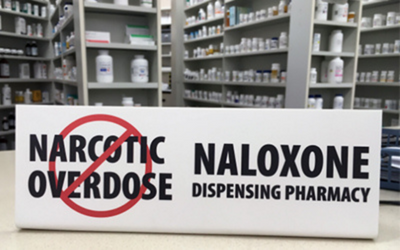
by R-IV PHTC | Jan 10, 2020 | Training
An Introduction to Harm Reduction
Year: 2019 | Competency/Strategic Skill: Problem Solving | Priority Topic: Opioid Abuse | Setting: Online | Format: On-Demand | Sponsor: Emory University/Central Office
Overview:
This is a 90-minute recording of a live webinar held on November 18, 2019.
What is harm reduction? How does it improve public health? By focusing on positive change, harm reduction encompasses a range of evidence-based and cost-effective services to reduce negative consequences for people who use drugs. During this webinar you will learn about specific harm reduction interventions including Syringe Service Programs (SSP) and Naloxone distribution. Also there will be insight into a few of the barriers to successfully implement harm reductions programs as well as how these programs can make the community stronger and more capable of reducing overdose, disease burden and community isolation.

by R-IV PHTC | Jan 10, 2020 | Training
Protecting the Public from Mosquito-borne Illnesses: The Zika Challenge
Year: 2016 | Competency/Strategic Skill: Program Planning | Priority Topic: Other Infectious Diseases | Setting: Online | Format: On-Demand | Sponsor: Emory University/Central Office
Overview:
This is a 90-minute recording of a live webinar.
On March 25, 2016 Beth P. Bell, MD, MPH, Director of CDC’s National Center for Emerging and Zoonotic Infectious Diseases, discussed the latest research findings about the current Zika outbreak and provided an overview of how health officials and health care providers can protect the public’s health from Zika virus infection. Dr. Bell also described prevention messages targeting the public and special groups such as pregnant women and travelers, and she identified credible resources that health officials and health care providers can use to train staff and educate the community about Zika and other mosquito-borne illnesses.

by R-IV PHTC | Jan 10, 2020 | Training
Opioid Epidemic and Policy: Where have we been and where are we now?
Year: 2019 | Competency/Strategic Skill: Program Planning | Priority Topic: N/A | Setting: Opioid Abuse | Format: On-Demand | Sponsor: Emory University/Central Office
Overview:
This is a 90-minute recording of a live webinar.
The current opioid epidemic exists in the context of unique drivers and circumstances including pharmaceutical marketing, business decisions of illicit drug distributors, stigma, inadequate medical and behavioral health systems, social determinants of health, among other factors. Response to this public health crisis has mobilized release of new guidance materials, legislation, funding, and policy change to address prevention, treatment, and recovery. Response to opioid use as a public health concern, however, is not new. This presentation will provide a brief overview of the history of opioid crisis and response, and the policy and programmatic response to the current crisis, including how the Substance Use-Disorder Prevention that Promotes Opioid Recovery and Treatment for Patients and Communities Act (SUPPORT for Patients and Communities Act) is guiding current federal response. A systems mapping framework will be used to describe how specific policy actions fit into the overall response effort, and the populations affected.
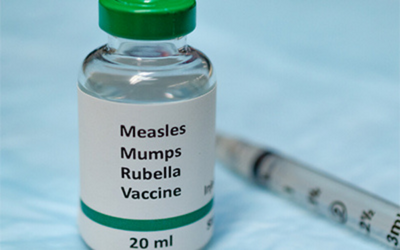
by R-IV PHTC | Jan 10, 2020 | Training
Vaccine Preventable Disease Outbreaks and Challenges in Vaccination
Year: 2019 | Competency/Strategic Skill: Program Planning | Priority Topic: Other Infectious Diseases | Setting: Online | Format: On-Demand | Sponsor: Emory University/Central Office
Overview:
This is a 90-minute recording of a live webinar.
This webinar will describe recent outbreaks of vaccine-preventable diseases, explore trends in national vaccination rates, and discuss challenges in vaccination. The webinar also describes findings from CDC audience research, tips for communicating with parents, and CDC resources for healthcare professional education and parent education.

by R-IV PHTC | Jan 10, 2020 | Training
Childhood Obesity: Simulating the Impacts of Policy Interventions
Year: 2019 | Competency/Strategic Skill: Program Planning | Priority Topic: Childhood Obesity | Setting: Online | Format: On-Demand | Sponsor: Emory University/Central Office
Overview:
This is a 90-minute recording of a live webinar.
Systems thinking, especially with simulation models, facilitates understanding of complex health policy problems. Using a simulation model to educate legislators, public health experts, and education leaders about the policies that have the greatest short- and long-term impact on childhood obesity can encourage strategic investment in low-cost, high-return policies. This webinar will feature the Georgia childhood obesity model created by and for legislators and other stakeholders to support dialogue on policy interventions designed to reduce childhood obesity (specifically, BMI for age percentiles). Participants will have the opportunity to explore the model and understand how policies and evidence-based interventions can impact obesity prevalence and costs over time.

by R-IV PHTC | Jan 10, 2020 | Training
Mental Health Response to Disasters: Human-Created Disasters (Part Two)
Year: 2019 | Competency/Strategic Skill: Program Planning | Priority Topic: Mental Health | Setting: Online | Format: On-Demand | Sponsor: Emory University/Central Office
Overview:
This is a 90-minute recording of a webinar.
This second webinar will discuss a mental health response to human-created disasters. The phases of response to a human-created disaster will be described as well as the factors that lead to resilience. Case studies on recent human-created disasters will be discussed. It will also discuss the relationship between the mental health and public health sectors and how these two groups work together during a human-created disaster.

by R-IV PHTC | Jan 10, 2020 | Training
Mental Health Response to Disasters: Natural Disasters (Part One)
Year: 2019 | Competency/Strategic Skill: Program Planning | Priority Topic: Mental Health | Setting: Online | Format: On-Demand | Sponsor: Emory University/Central Office
Overview:
This is a 90-minute recording of a webinar.
This webinar is part one of a two-part series. The first webinar will discuss a mental health response to both natural and human-created disasters. The differences for each type of disaster will be discussed with a focus on natural disasters. Case studies from different natural disasters will be discussed. It will also discuss the relationship between the mental health and public health sectors and how these two groups work together during a natural disaster.

by R-IV PHTC | Jan 10, 2020 | Training
Religion as a Social Determinant of Public Health
Year: 2019 | Competency/Strategic Skill: Program Planning | Priority Topic: N/A | Setting: Online | Format: On-Demand | Sponsor: Emory University/Central Office
Overview:
This is a 90-minute recording of a webinar.
This webinar presents evidence that religion should be considered among the social determinants of health, based on epidemiological research. Plausible mechanisms at the individual level are the lower smoking rates and greater social ties of those with religious participation. At the community level, faith-based organizations engage in partnerships with public health agencies as a source of social capital to promote health and prevent disease, particularly in hard-to-reach populations.

by R-IV PHTC | Jan 10, 2020 | Training
Scaling Up PrEP Care to End the HIV Epidemic
Year: 2019 | Competency/Strategic Skill: Program Planning | Priority Topic: HIV/AIDS | Setting: Online | Format: On-Demand | Sponsor: Emory University/Central Office
Overview:
This is a 90-minute recording of a webinar.
The federal government is launching an initiative to end the HIV epidemic by 1) increasing the number of US Americans who know their current HIV status, 2) increasing the number of US Americans with HIV infection who are effectively treated and have sustained viral suppression, and 3) rapid expansion and reduced racial/ethnic disparities in PrEP provision to the estimated 1.2 million US American with sexual and injection behaviors that place them as substantial risk of HIV acquisition. This webinar will discuss what PrEP is, indicators for its use and how health departments can support its expansion and effective use.

by R-IV PHTC | Jan 10, 2020 | Featured Training, Training
Modern Mentorship: Growing Public Health Leaders
Year: 2019 | Competency/Strategic Skill: Leadership and Systems Thinking | Priority Topic: N/A | Setting: Online | Format: On-Demand | Sponsor: Emory University/Central Office
Overview:
This is a 90-minute recording of a webinar.
Now more than ever public health is doing more with less. How can we grow, retain and better engage our best resource: our people?
This webinar will expose the participant to mentorship as a way for Public Health to increase retention and engagement. Participants will be able to identify the value of mentorship, identify 4 models of mentorship, understand the benefits of having a mentorship program and identify some strategies for creating a successful program.

by R-IV PHTC | Jan 10, 2020 | Training
Empowering Your Audience to Improve Their Health: Tools for Elevating Chronic Disease Communications to Support Your Programs
Year: 2018 | Competency/Strategic Skill: Communication | Priority Topic: N/A | Setting: Online | Format: On-Demand | Sponsor: Emory University/Central Office
Overview:
This is a 90-minute recording of a webinar.
This webinar will present the National Association of Chronic Disease Directors’ approach to effective communications about chronic diseases and chronic disease programming. It will include a brief overview of how some patient populations receive their healthcare information and common problems and solutions to reaching these populations effectively with empowering health information. General guidance for how to evaluate your own communications tools and procedures also will be included.

by R-IV PHTC | Jan 10, 2020 | Training
Public Health Law 101 and Introduction to Legal Epidemiology
Year: 2018 | Competency/Strategic Skill: Policy Development | Priority Topic: N/A | Setting: Online | Format: On-Demand | Sponsor: Emory University/Central Office
Overview:
This is a 2.5-hour recording of a live workshop.
Public health law has important implications for protecting the public’s health. However, the need to protect the public’s health must be balanced with the rights of affected individuals. Accordingly, it is more important than ever for public health officials to understand the power and limits of their authority. Having an understanding of the constitutional power and limits of this authority equips public health practitioners and partners with the tools necessary to ensure their policies are constitutionally permissible and capable of withstanding legal challenge. Understanding the powers and limits of their authority is also central to intergovernmental collaboration. The legal concept of preemption, for example, has important implications for health care delivery and public health, but can be difficult to understand and challenging to navigate in practice. Legal research has also provided vital information on the rapidly changing legal landscape that can be correlated with data on health outcomes, system performance, and costs. State, tribal, local, and territorial health departments have expressed the need for capacity-building in surveilling and monitoring their own laws and policies. With the growing recognition that legal data can be used to guide public health practice comes the need for accurate translation, or dissemination, of legal epidemiology as a tool. This mini-course was developed to address these challenges.

by R-IV PHTC | Jan 10, 2020 | Training
The Interface of Public Health and Health Care: Population Health through Improved Infectious Disease Prevention and Management
Year: 2017 | Competency/Strategic Skill: Community and Partner Engagement | Priority Topic: Other Infectious Diseases | Setting: Online | Format: On-Demand | Sponsor: Emory University/Central Office
Overview:
This is a 90-minute recording of a webinar.
This webinar will introduce the audience to the national dialogue about public health and healthcare system integration. For the last several years, there has been an ongoing national dialogue about the need for improved coordination and integration between public health and the healthcare delivery system. With improved collaboration between these two entities, expectations are that population health objectives can be more effectively met, quality of care and services can be refined, and costs could decrease. In recent years, infectious diseases have been at the forefront of the public health portfolio and have helped demonstrate the significant need to strengthen the collaboration between public health and healthcare.

by R-IV PHTC | Jan 10, 2020 | Training
Outbreaks: Protecting Americans from Infectious Diseases
Year: 2016 | Competency/Strategic Skill: Data Analytics and Assessment | Priority Topic: Other Infectious Diseases | Setting: Online | Format: On-Demand | Sponsor: Emory University/Central Office
Overview:
This is a 90-minute recording of a live lecture.
Richard Hamburg, Interim President and CEO of Trust for America’s Health (TFAH) will present “Outbreaks: Protecting Americans from Infectious Diseases lecture, which is focused on the TFAH’s December 2015 Report of the same name. The report provides state-by-state infectious disease prevention and control indicators as well as national issues and recommendations for improving our nation’s efforts to fight infectious disease. The lecture will share examples of key emerging disease, infections and emergency threats; highlight key report findings; and provide recommendations for strengthening disease prevention and control efforts.

by R-IV PHTC | Jan 10, 2020 | Training
The Business of Public Health
Year: 2013 | Competency/Strategic Skill: Resource Management and Financial Planning | Priority Topic: N/A | Setting: Online | Format: On-Demand | Sponsor: Emory University/Central Office
Overview:
This is a 80-minute recording of a live lecture.
Looking at public health from a business perspective is vital, particularly in this uncertain economic time. Join us for an enlightening discussion on public health business planning with Dr. Stephen Orton, co-author of Public Health Business Planning: A Practical Guide and Deputy Director, Executive Education, with the North Carolina Institute for Public Health at the Gillings School of Global Public Health, UNC-Chapel Hill. Dr. Orton will provide an overview of public health business planning, including the value of applying business principles to public health, key elements of a strong business plan and case studies where public health agencies/departments have developed successful business plans.

by R-IV PHTC | Jan 10, 2020 | Training
Year: 2011 | Competency/Strategic Skill: Program Planning | Priority Topic: N/A | Setting: Online | Format: On-Demand | Sponsor: Emory University/Central Office
Overview:
This is a 90-minute recording of a live lecture.
The Georgia Meth Project is a large-scale prevention program aimed at reducing Meth use through public service messaging, public policy, and community outreach. Central to the program is a research-based marketing campaign that graphically communicates the risks of Meth use. The Meth Project has been repeatedly cited as a powerful private-sector response to a devastating social problem and was recognized by the White House as one of the nation’s most effective prevention programs. The Georgia Meth Project activities increase awareness of the critical nature of the Meth problem, influencing and escalating public dialogue to find solutions. Coordinating closely with local, state, and federal agencies, the Georgia Meth Project organizes a broad range of community outreach programs that mobilize communities across Georgia to assist in Meth awareness and prevention activities.
This lecture will focus on the current state of methamphetamine use in Georgia, the Meth Project model, strategies and partners, and insights that might be incorporated into contemporary public health practice, training and education.

by R-IV PHTC | Jan 10, 2020 | Training
Health Literacy: Can We Confuse People Less?
Year: 2012 | Competency/Strategic Skill: Communication | Priority Topic: N/A | Setting: Online | Format: On-Demand | Sponsor: Emory University/Central Office
Overview:
This is a 90-minute recording of a live lecture.
What is this lecture about? Health Literacy is essential for successful access to care and use of services, self-care of chronic conditions, and maintenance of health and wellness. Health literacy is fundamental to healthcare that requires individuals to have a more active role in decisions and management. The IOM reports that 90 million people, nearly half our adult population, lack health literacy skills needed to understand and act on health information and health system demands. Only 12% of U.S. adults have the health literacy proficiency to perform complex health tasks such as using a table to calculate an employee’s share of health insurance costs. Join us for updates on the latest research findings, policy implications, and hands-on tools for addressing the problem.

by R-IV PHTC | Jan 10, 2020 | Training
Controlling Asthma in Georgia: Accomplishments and Future Directions
Year: 2014 | Competency/Strategic Skill: Program Planning | Priority Topic: N/A | Setting: Online | Format: On-Demand | Sponsor: Emory University/Central Office
Overview:
This is a 80-minute recording of a live lecture.
This is the fifth presentation in our 5-part series on Georgia’s health priorities. This presentation will focus on asthma in Georgia.
Dr. Elizabeth Herman, senior scientist with the Air Pollution and Respiratory Health Branch, National Center for Environmental Health at Centers for Disease Control and Prevention, will share the national perspective on the burden of asthma and efforts to reduce that burden as well as opportunities for state programs to expand access to comprehensive asthma control services through health care reform. Dr. Jean O’Connor, Director, Health Promotion and Disease Prevention Section with the Georgia Department of Health, will focus on the burden of asthma in Georgia and what the Georgia Asthma Control program has done to date to address that burden.
The Georgia Asthma Control program (GACP) is part of a national initiative launched by the Centers for Disease Control and Prevention, National Center for Environmental Health (Air Pollution and Respiratory Health Branch). GACP aims to reduce the burden of asthma and improve the health and quality of life among Georgians affected by asthma through effective control of the disease.

by R-IV PHTC | Jan 10, 2020 | Training
State of the State Address on Georgia’s Health Priorities
Year: 2013 | Competency/Strategic Skill: Program Planning | Priority Topic: N/A | Setting: Online | Format: On-Demand | Sponsor: Emory University/Central Office
Overview:
These are recordings of a series of live lectures.
Dr. Brenda Fitzgerald, Commissioner of the Georgia Department of Public Health will provider a State of the State Address on the Georgia’s Health Priorities. The lecture provides an overview of the Georgia DPH health priorities for the state of Georgia including specific health problems and target outcomes. Dr. Fitzgerald will also discuss strategies in place to address these health problem and the work still needing to be done to improve the health and vitality of Georgia’s residents.

by R-IV PHTC | Jan 10, 2020 | Training
Implementation Science: Approaches to Integrating Research into Practice and Policy
Year: 2011 | Competency/Strategic Skill: Program Planning | Priority Topic: N/A | Setting: Online | Format: On-Demand | Sponsor: Emory University/Central Office
Overview:
This is a 90-minute recording of a live lecture.
Each year, billions of U.S. tax dollars are spent on research and hundreds of billions are spent on service delivery programs. However, relatively little is spent on, or known about, how best to ensure that the lessons learned from research inform and improve the quality of health and human services and the availability and utilization of evidence-based approaches. In the context of increased interest and investment in comparative effectiveness research that will help to determine the optimal and/or most cost-effective interventions to be used in clinical and community healthcare practice, it is essential that both clinical and public health practitioners are equipped with empirically-supported strategies to integrate scientific knowledge and effective interventions into everyday use. The National Institutes of Health have recognized that closing the gap between research discovery and program delivery is both a complex challenge and an absolute necessity if we are to ensure that all populations benefit from the Nation’s investments in new scientific discoveries. This lecture will focus on approaches to moving research into public health practice and policy. With an understanding of the importance of implementation science, challenges for improving efficient and meaningful translation will be discussed and dissemination and implementation frameworks will be highlighted along with examples and useful tools for both researchers and public health practitioners.

by R-IV PHTC | Jan 10, 2020 | Training
Georgia Legislative Update and the Impact on Public Health
Year: 2018 | Competency/Strategic Skill: Policy Development | Priority Topic: N/A | Setting: Online | Format: On-Demand | Sponsor: Emory University/Central Office
Overview:
These are recordings of live lectures held on May 5, 2015; May 6, 2016; May 19, 2017; and May 16, 2018.
Scott Maxwell, Founding Partner of Mathews and Maxwell, Inc. and Legislative Liaison for the Georgia Public Health Association will provide an update on the previous Georgia Legislative Session, including highlights of legislation and appropriations that will have an impact on public health. The presentation will also include a forecast for public health-related legislation. Scott will leave participants with some strategies for promoting public health in their local communities and across the state.

by R-IV PHTC | Jan 10, 2020 | Training
Crisis and Emergency Risk Communication (CERC): Examples from Ebola
Year: 2014 | Competency/Strategic Skill: Communication | Priority Topic: Other Infectious Diseases | Setting: Online | Format: On-Demand | Sponsor: Emory University/Central Office
Overview:
This is a 105-minute recording of a webinar.
Health communication is a critical piece of keeping the public safe during a public health emergency. During this two hour interactive session, the audience will learn the principles behind crisis and emergency risk communication. Because each emergency is different, we will discuss ways to tailor messages for the crisis and emergency risk communication. During times of crisis, developing partnerships with stakeholders to disseminate messages is very important. Participants will learn about ways to develop these relationships for successful health communication.

by R-IV PHTC | Jan 10, 2020 | Training
A Community Initiative to Fight the Heroin and Opiate Epidemic
Year: 2017 | Competency/Strategic Skill: Community and Partner Engagement | Priority Topic: Opioid Abuse | Setting: Online | Format: On-Demand | Sponsor: University of Alabama at Birmingham
Overview:
This is a 60-minute recording of a live webcast.
Joyce White Vance was one of the first five U.S. attorneys nominated by President Barack Obama. When few recognized the emerging epidemic of heroin- and opioid-related deaths, Vance, in her role as U.S. attorney, convened the first “Pills to Needles Summit” in June 2014 that overnight galvanized community leaders around this new public health threat. Through her leadership and determination, she established a new paradigm to address this threat to the public’s health that linked law enforcement, government, academia, public health, victims and advocates. Together these institutions, organizations and individuals have worked a long-term strategy that recognizes the complexities of this epidemic, and is sufficiently flexible to adjust to anticipated but unknown changes in the substances, the populations and the distributors.

by R-IV PHTC | Jan 10, 2020 | Training
Population-level Risks for Preterm Birth in the U.S. and Alabama
Year: 2017 | Competency/Strategic Skill: Leadership and Systems Thinking | Priority Topic: N/A | Setting: Online | Format: On-Demand | Sponsor: University of Alabama at Birmingham
Overview:
This is a 1-hour recording of a live webcast.
It is well known that preterm birth rates are higher in the U.S. than in other developed countries, and preterm birth rates are higher in Alabama than in many other states in the U.S. While our natural inclination is to look for weaknesses in the health care system or health care system access that might explain these rates, the preterm birth rate is actually not that responsive to changes in health care. This presentation explores an alternative explanation: that more child-bearing age women in the U.S. are exposed to some of the major population-level risks for preterm birth, compared to women in other countries. We compare exposures at the pregnancy, individual, community and policy levels and identify the key ways that the U.S. differs from other countries. We then consider which of these factors also differentiate Alabama from other states.

by R-IV PHTC | Jan 10, 2020 | Training
Alzheimer’s from A to Z: Memory Loss, Dementia and the Basics of Alzheimer’s Disease
Year: 2017 | Competency/Strategic Skill: N/A | Priority Topic: N/A | Setting: Online | Format: On-Demand | Sponsor: University of Alabama at Birmingham
Overview:
This is a 1-hour recording of a live webinar.
Alzheimer’s disease is not a normal part of aging. It is the most common form of dementia and accounts for 60-80% of all cases of dementia in American’s aged 71 and older. This program provides more information on the basics of Alzheimer’s including information on detection, causes and risk factors, stages of the disease, treatment and more. In this training, we will discuss various aspects of Alzheimer’s disease including the anatomy of Alzheimer’s disease (normal aging versus Alzheimer’s), how individuals experience dementia (i.e. progression), reversible versus non-reversible dementias and related dementias, risk factors of Alzheimer’s disease, screening, diagnosis and treatment, medications to treat symptoms, clinical research studies, and other related topics.

by R-IV PHTC | Jan 10, 2020 | Training
The Cost of Health Literacy
Year: 2017 | Competency/Strategic Skill: Communication | Priority Topic: N/A | Setting: Online | Format: On-Demand | Sponsor: University of Alabama at Birmingham
Overview:
This is a 1-hour recording of a live online training.
Although health literacy has gained much-needed attention over the past decade, an alarming number of American adults continue to report a poor understanding of healthcare information. It is important that everyone working in health care, from front-desk staff to primary care providers, have a thorough understanding of the complexity of health literacy and the impact limited health literacy has on patient outcomes and health care costs. This program provides an introduction to health literacy and how it contributes to increased health care cost. The program will also discuss ways to identify patients at risk for low health literacy as well as practical tools health professionals can use to improve provider-patient communication.

by R-IV PHTC | Jan 10, 2020 | Training
Opioid Prescription Control: When the Corrective Goes Too Far
Year: 2018 | Competency/Strategic Skill: Program Planning | Priority Topic: Opioid Abuse | Setting: Online | Format: On-Demand | Sponsor: University of Alabama at Birmingham
Overview:
This is a 1-hour recording of a live webinar.
The purpose of this program is to delve deeper into the complexity of the evolving opioid epidemic. This program will discuss how the opioid epidemic has evolved including current trends in opioid prescribing and use, early causes of the opioid epidemic, and factors that sustain the epidemic today. In addition, federal response policies will be discussed including the intended and unintended impacts for prescribers and patients. CDC Guidelines that encourage a careful weighing of risks and benefits for each patient will also be reviewed. Finally, the importance of patient and provider education and legislation in preventing prescription overdose death will be introduced.

by R-IV PHTC | Jan 10, 2020 | Training
Human Trafficking Awareness for Public Health Providers
Year: 2016 | Competency/Strategic Skill: N/A | Priority Topic: N/A | Setting: Online | Format: On-Demand | Sponsor: University of Alabama at Birmingham
Overview:
This is a 2-hour recording of a live webcast.
Human trafficking is the illegal trade of human beings, through abduction, the use of threat of force, deception, fraud, or sale for the purposes of sexual exploitation or forced labor. Every year, thousands of men, women and children fall into the hands of traffickers, in their own countries and abroad. Almost every country in the world is affected by trafficking, whether as a country of origin, transit or destination for victims. This program will provide a firsthand account from a sex-trafficking victim of her experiences, along with how she survived and reclaimed her life. Program faculty will discuss what the human trafficking”red flags” are to look for, what questions to ask, how to ask those questions and what verbal and non-verbal clues they should look for.

by R-IV PHTC | Jan 10, 2020 | Training
The Search for a National Child Health Policy: Progress, Opportunities & Challenges
Year: 2016 | Competency/Strategic Skill: Policy Development | Priority Topic: Childhood Obesity | Setting: Online | Format: On-Demand | Sponsor: University of Alabama at Birmingham
Overview:
This is a 1-hour recording of a live lecture.
This is the Ann Dial McMillan Endowed Lectureship In Family & Child Health featuring Sara Rosenbaum, JD, Professor of Health Law & Policy and Founding Chair, Dept. of Health Policy, Milken Institute School of Public Health, George Washington University.

by R-IV PHTC | Jan 10, 2020 | Training
The Diabetes Epidemic in Alabama: An Overview
Year: 2016 | Competency/Strategic Skill: N/A | Priority Topic: N/A | Setting: Online | Format: On-Demand | Sponsor: University of Alabama at Birmingham
Overview:
This is a 90-minute recording of a live webcast.
In the past several decades diagnosed cases of diabetes have increased at alarming rates, costing billions of dollars in medical expenditures and lost work and wages for people known to have the disease. In 2015, the CDC estimated that 29.1 million children and adults in the U.S. (9.3% of the population) had a confirmed diagnosis of diabetes and as many as 86 million (25% of the U.S. population) may have a condition known as pre-diabetes. Alabama currently ranks 50th, with the highest prevalence of diabetes in the U.S. In the past two years, the prevalence of diabetes has increased from 11.8 percent to 13.8 percent in the adult population in Alabama, with many more undiagnosed. Program faculty will provide an overview of diabetes including diagnosis, management and complications.

by R-IV PHTC | Jan 10, 2020 | Training
Human Trafficking in Alabama: Resources for Healthcare Workers to Identify and Combat Human Trafficking
Year: 2016 | Competency/Strategic Skill: Program Planning | Priority Topic: N/A | Setting: Online | Format: On-Demand | Sponsor: University of Alabama at Birmingham
Overview:
This is a 90-minute recording of a live broadcast.
Human trafficking is one of the largest criminal industries in the world, second only to drug trafficking. Worldwide, it is a $32 billion industry involving the illegal movement of men, women, and children, for the purpose of forced labor or commercial sexual exploitation. In the United States, human trafficking has been reported in all 50 states and 40% of human trafficking takes place in the Southeast. Interstate I-20 is considered a”superhighway” for human trafficking; Birmingham is considered one of the hot spots. This program will give a brief introduction to the connection between trauma and health, provide a brief definition of human trafficking, examine research, theories, and concepts associated with human trafficking, and discuss the importance of trauma informed care in helping victims of human trafficking. This program will conclude with a look at how the WellHouse is integrating trauma informed care into their program and services.

by R-IV PHTC | Jan 9, 2020 | Training
Disaster Preparedness: Are We Ready for Kids
Year: 2013 | Competency/Strategic Skill: Program Planning | Priority Topic: N/A | Setting: Online | Format: On-Demand | Sponsor: University of Alabama at Birmingham
Overview:
This is a 90-minute course.
Children represent an at-risk segment of the population in the face of natural and man-made disasters. Effective pediatric planning at the state and local level requires an awareness of hazard vulnerabilities and the advance consideration of the unique needs of children and families. Improved readiness can be achieved through collaboration between public health and emergency management leadership and key pediatric care experts and stakeholders in the private sector. This course will examine how effective communication among all parties, including the public, will serve to improve preparedness in advance of a disaster.

by R-IV PHTC | Jan 9, 2020 | Training
Vaccines: They’ve Got To Be Used To Work-Lessons from the 2015 Measles Outbreak
Year: 2015 | Competency/Strategic Skill: Program Planning | Priority Topic: Other Infectious Diseases | Setting: Online | Format: On-Demand | Sponsor: University of Alabama at Birmingham
Overview:
This is a 90-minute recording of a live satellite broadcast presentation.
Program faculty discussed how the measles outbreak may have improved the public’s perception of the benefits of vaccination programs, leading to improved vaccination rates in at-risk communities.

by R-IV PHTC | Jan 7, 2020 | Training
Year: Unknown | Competency/Strategic Skill: Communication | Priority Topic: N/A | Setting: Online | Format: On-Demand | Sponsor: University of Louisville
Overview:
This video includes an overview of health literacy (definition, types, statistics), a discussion of health literacy as a public health issue and issue among African Americans, and strategies to address health literacy among African Americans.
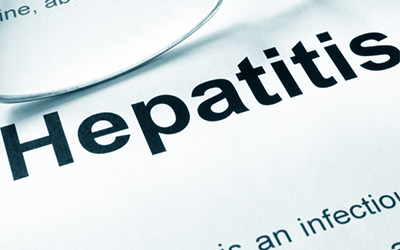
by R-IV PHTC | Jan 7, 2020 | Training
HIV & Hepatitis C – A Public Health Emergency of Nationwide Concern: Kentucky & Indiana’s Local Response
Year: 2017 | Competency/Strategic Skill: Data Analytics and Assessment | Priority Topic: HIV/AIDS | Setting: Online | Format: On-Demand | Sponsor: University of Louisville
Overview:
This is a 1-hour recording of a live webinar.
This webinar will characterize the HIV and Hepatitis C outbreak in Scott County in IN and regions within KY. The goal of the lecture is to review the epidemiology associated with the outbreaks in the two states and discuss the current control programs in Indiana and Kentucky.

by R-IV PHTC | Jan 7, 2020 | Training
Year: 2015 | Competency/Strategic Skill: Data Analytics and Assessment | Priority Topic: N/A | Setting: Online | Format: On-Demand | Sponsor: University of Louisville
Overview:
This is a 30-minute online course.
Probability Overview offers a review of statistical procedures for calculating probability and making inferences from data. Students will be able to apply various methods to calculate probability of an event using tables or probability equations.














































